The working class hero: Through the years with Stephen Cummings
Brit on his former teams, Lance Armstrong and riding with Mark Cavendish
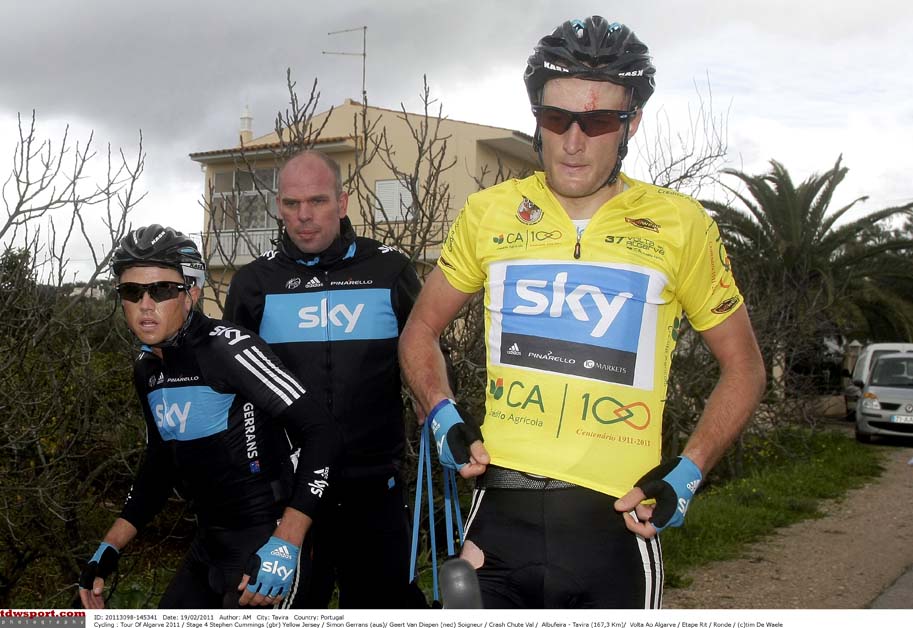
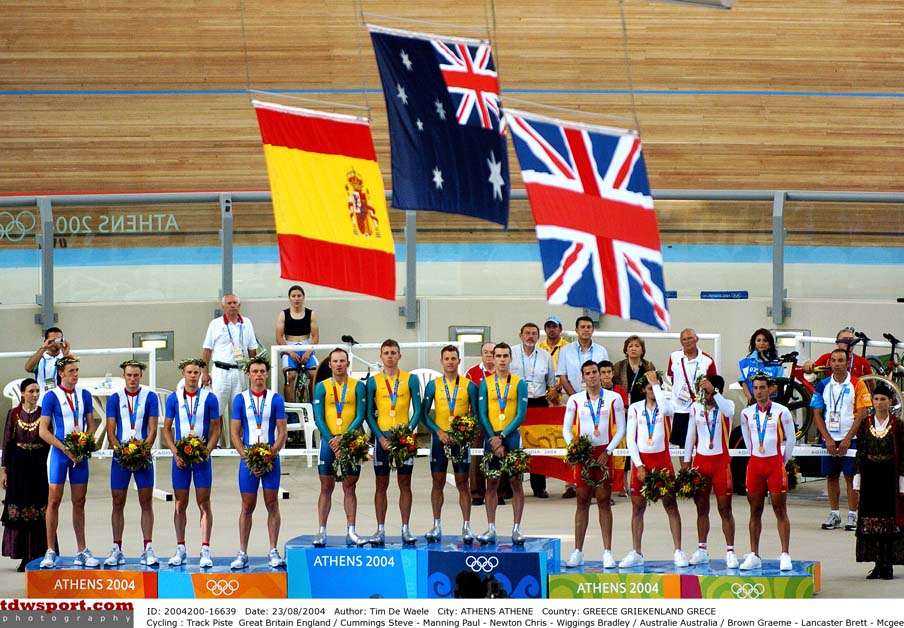
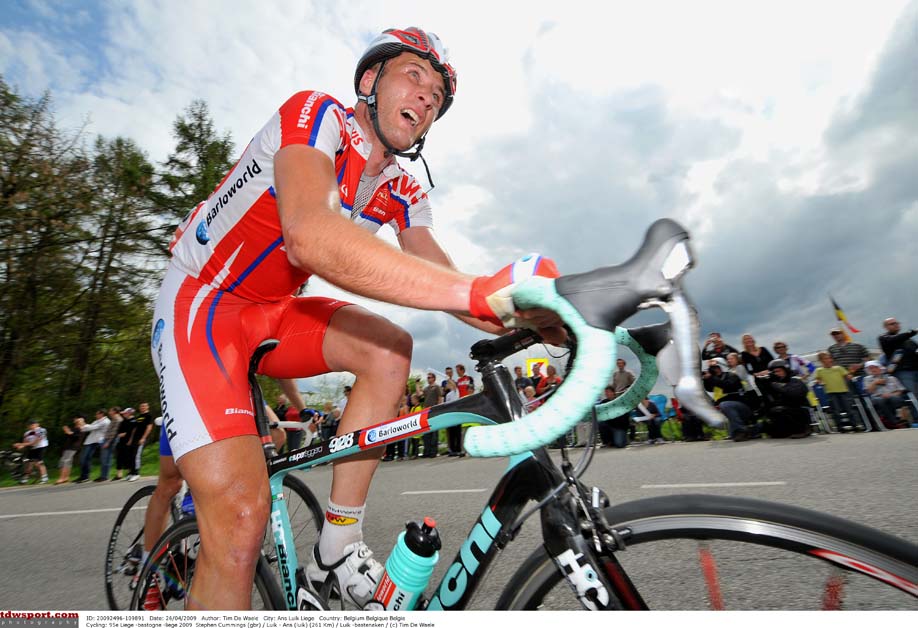
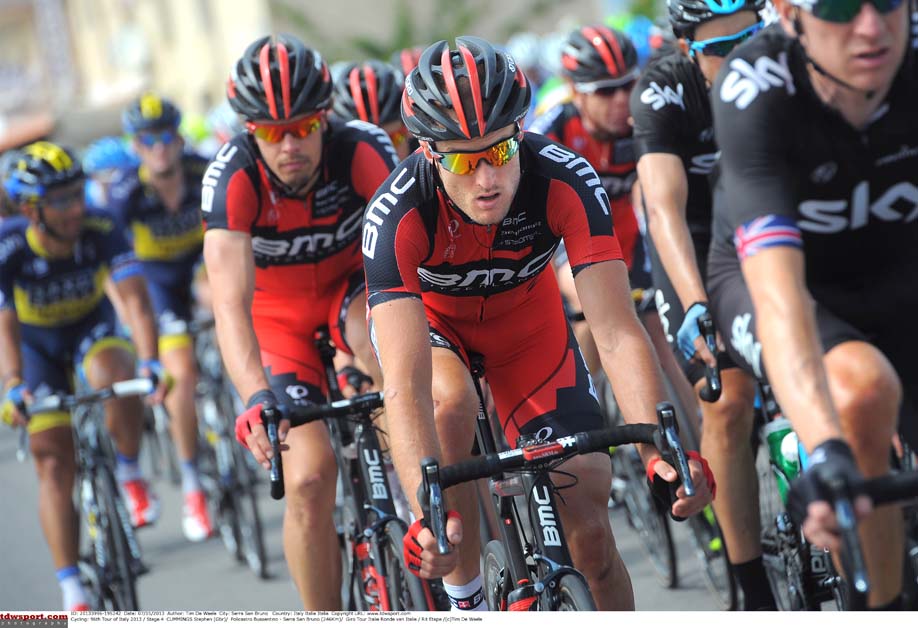
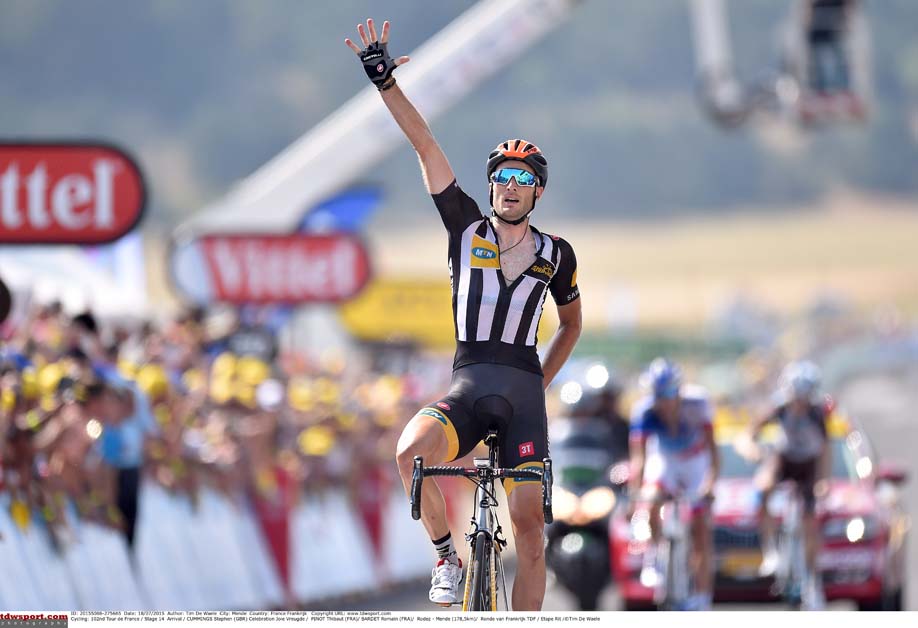
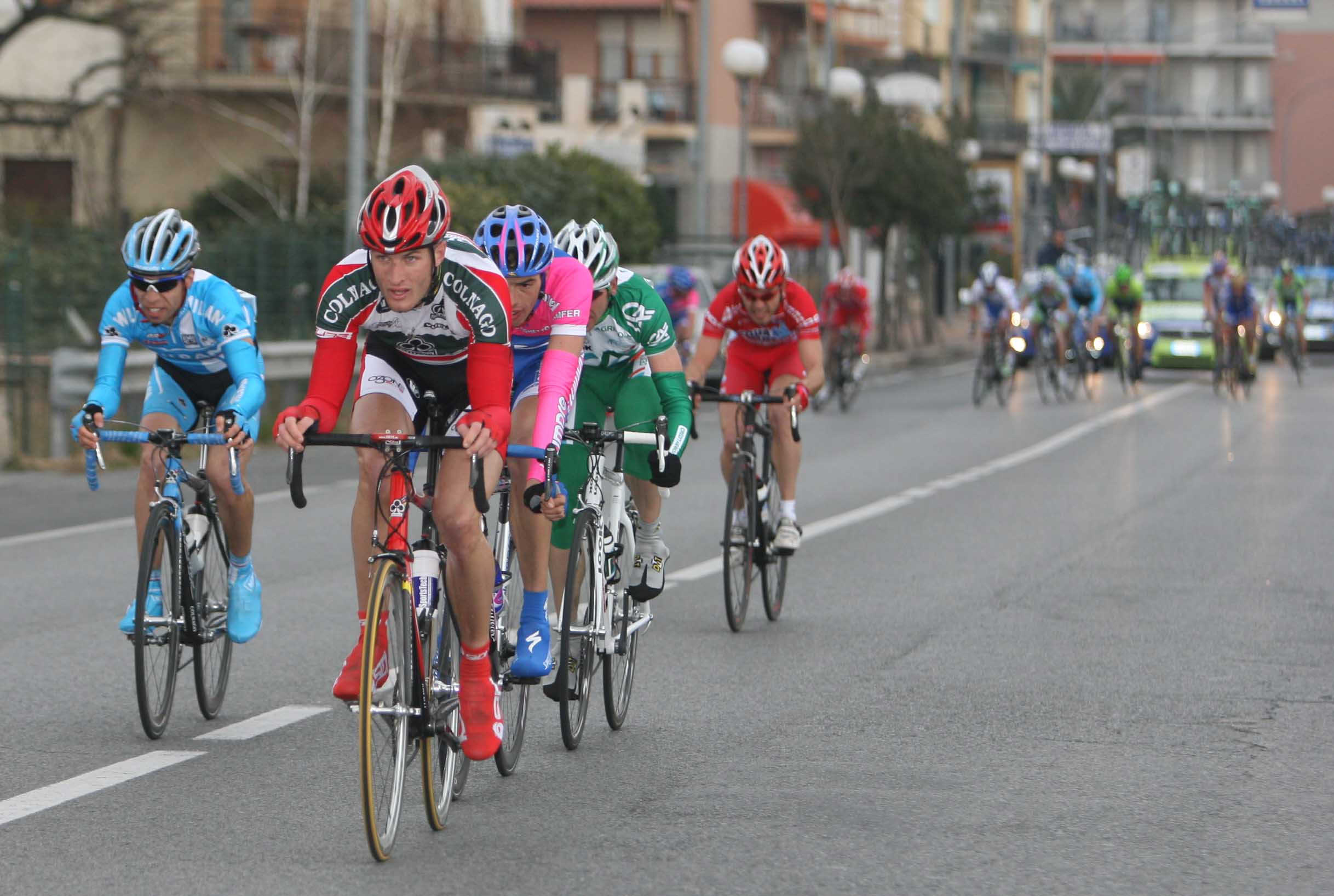
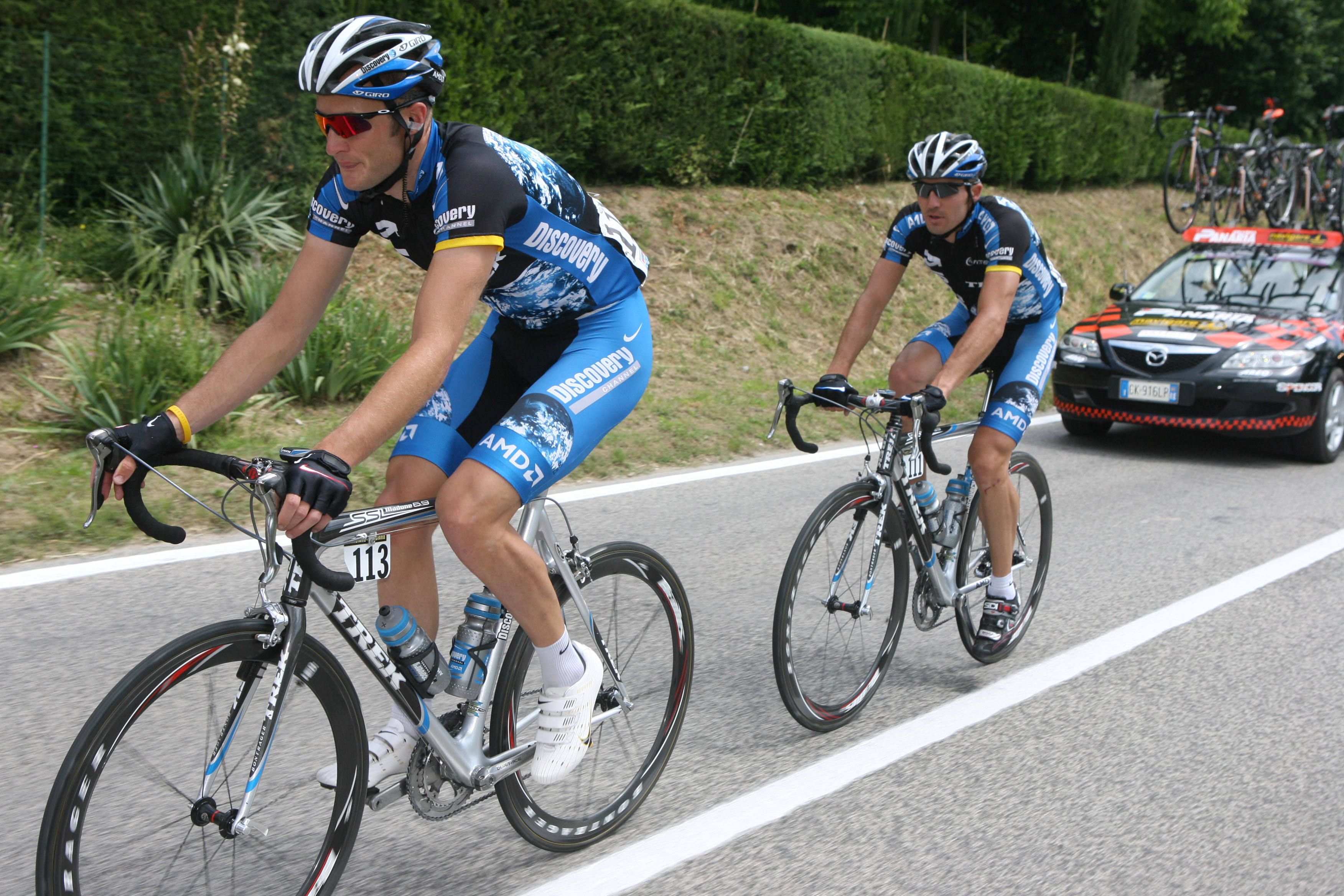
Stephen Cummings is about to enter his 11th season as a professional rider with a new-look Team Dimension Data. The 34-year-old found a new lease of life in his first season at MTN-Qhubeka as he enjoyed one of his best seasons to date in 2015 with a popular stage victory at the Tour de France.
Cummings had already enjoyed a successful stint on the track before he switched to the tarmac. He began his road career in 2005 with the Pro Continental outfit Landbouwkrediet-Colnago, as one of only two non-Belgian riders on the team, and has ridden for a wide variety of teams since then.
At MTN-Qhubeka's training camp in South Africa, Cyclingnews sat down with the forthright Briton and took a trip down memory lane.
British Cycling track team (Until 2005)
I was fortunate to be riding in that era with British Cycling. I think that it was kind of the start of what we have now and since then it has just snowballed. If you go before that time, when I was a junior, there was Chris Boardman but other than him there weren't many British professionals. Back then it was beyond a dream to become a professional but now it is normal. Cycling has changed a lot.
I learned so much about all aspects of cycling, and aspects of life such as how to plan. I have good memories from that period and we were successful in that time. I was world champion, commonwealth champion, I wasn't Olympic champion but I was close. It was a nice time.
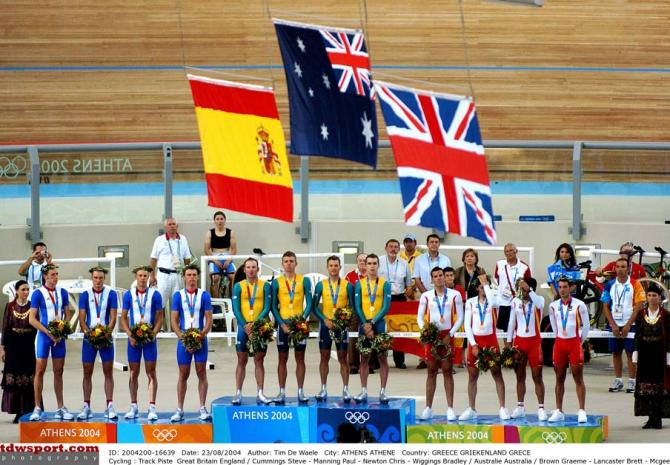
Landbouwkrediet-Colnago (2005-2006)
The latest race content, interviews, features, reviews and expert buying guides, direct to your inbox!
I liked my time on the track but my heart was always in the road. To be honest, the only reason I went onto the track was because it was a route onto the road. At the time, I felt like I needed to go full-time and make the most of the opportunity that I had on the road.
The transition over to Landbouwkrediet was a big change. British Cycling at that time was almost like the gold standard, and even now there are professional teams that are still trying to get what they had. At times, when you leave somewhere that good and go somewhere else it can be frustrating but it also let me take more control over everything around me. I tried to take care of myself so that I didn't get frustrated with the others. It was a cool team to be in.
When you turn pro you're living the dream but after a couple of weeks you realise that it's not as glamorous as you thought it might be and then reality kicks in. However, I can honestly say that I really loved my first year. I still enjoyed it in the second year and physically I was much better but I wanted to move on and step up. It would have been hard to sustain what I was doing because I wasn't getting a lot of money and I was probably going into a lot of debt. Also, I just wanted more than that.
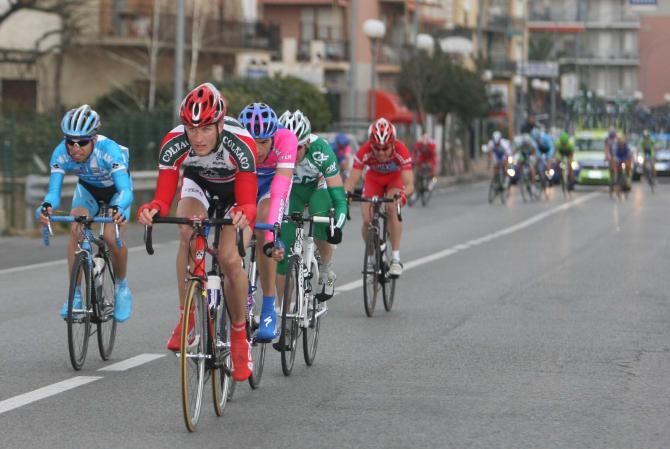
Discovery Channel (2007)
Discovery Channel was the total opposite to Landbouwkrediet. I went from that life in Belgium to being in a room with Lance Armstrong and Sheryl Crowe, and everyone was looking at me and saying 'who is that guy?'. Nobody knew me. It was weird because these guys like George Hincapie, Lance Armstrong and the Tour de France team were stars.
It was a step up for me but I was really well prepared. I had Sean Yates as my director and we were on it from the start. I was training like a madman, it was crazy the amount of hours I did, even before Christmas, just so we were ready. I had the engine but I needed the refinements. I was still a bit heavy and the understanding of what was applied wasn't quite there but it wasn't that I wasn't trying, it just takes time.
I was lucky because George had a crash and I got drafted into the Classics team at the last-minute and I got a lot of experience. It was nice that they thought so highly of me that they gave me the chance to do that with such a strong team. Straight after the classics I did the Giro d'Italia, which for the first year at that level was pretty good. The Giro was a big adventure for me. We were supposed to go there for Ivan Basso but he had a problem so he couldn't ride, so we went there with Yaroslav Popovych but he crashed out. It was almost the perfect thing for us because we were just racing for ourselves. In the end, I was just about surviving but that's sort of what you're doing in your first Grand Tour.
The team had a really nice atmosphere and it was really relaxed. It was probably one of the nicest teams, in terms of atmosphere, that I've been in. The team this year (MTN-Qhubeka) has probably been comparable but there was something about it, maybe because it was new to me.
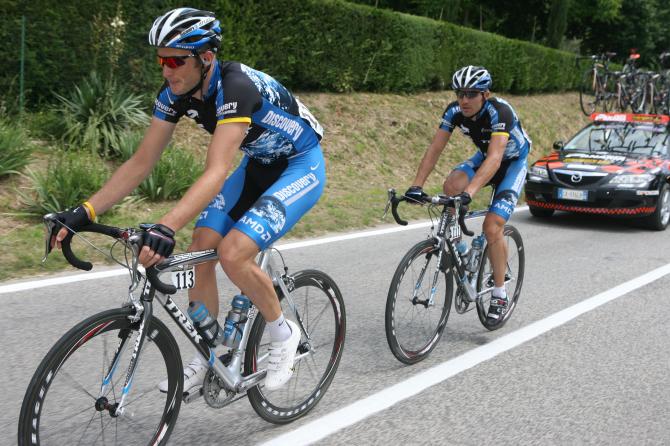
Some people say that moving to Barloworld was a step backward but I saw it as more of an opportunity to take on a different role. At Discovery you were there to do a job and that was it. You were either pulling on the front or you won races, and I wasn't ready to win. I was just there to pull and help the others to win races. In Barloworld, I was able to think about winning bike races for myself again.
It happened at a good moment for me and I learned a lot from it. I started to think a lot more about my weight. It was important to be at the right weight at any time. However, the biggest lesson was probably how to live like a real bike rider.
Riding for Barloworld was somewhere in between Discovery and Landbouwkrediet, in terms of the budget. The team was run like a family, which was really cool. They'd been together, Claudio Corti and Alberto Volpi, at Saeco, so there was a big history to the team. I really enjoyed my time there and I really enjoyed the races that we did in Italy. It really suited me well. Sometimes it was tough though because there was a bit of an old-school mentality, which is good for some things but it's not always as black and white as they see it. I really liked Corti, we had our ups and downs but that is like any relationship. Now when I see him it is all good and I've got a huge amount of respect for Claudio, and he's a good person.
It was really sad when the team folded at the end of 2009. In 2008, I had decided to target the track instead of the Tour de France, which was a bad decision. It was against what my heart wanted but I felt that I owed it to British Cycling to go back and help them on the track for the Olympics. In the end, it was a wrong decision because I didn't want to do it and I think that if you don't really want to do something then you don't do it to your maximum. I ended up missing out on both [The Olympic track team and the Tour]. I went to the Olympics but that was for the time trial. Still, I came back from that and I had a good end of the season for Barloworld.
However, from when Moisés Dueñas went positive [at the 2008 Tour de France – ed] Barloworld went from a team that was on the up, we were almost sure of going to the Tour in 2009 and in my mind already thought that I had a great chance of going to the Tour the next year, to 'what's going to happen now?'
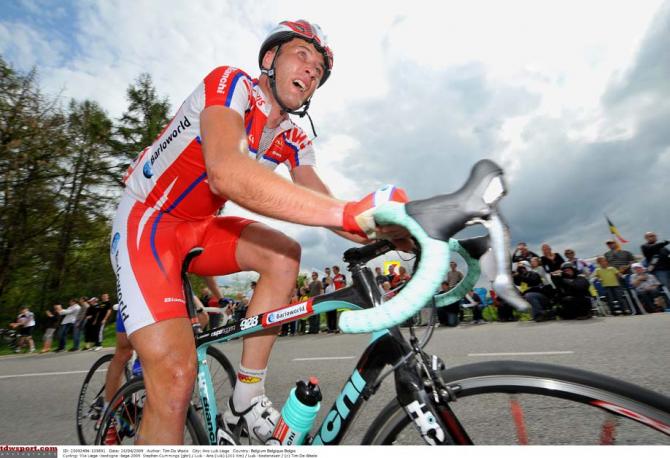
Team Sky (2010-2011)
I probably would have moved to Sky in 2010, even if Barloworld hadn't folded. The team was new, and I was so up for it and so looking forward to it but in the end it was difficult. They worked hard but there were people the team that didn't have the experience in the professional cycling world. Their hearts were in the right place but I was clashing with them at times and telling them that something wasn't going to work. I'd had a bit more experience, not masses, and I felt that it wouldn't work but sometimes you have to make those mistakes so that you can refine things. I felt like I was in that team when it was a really harsh learning curve.
The second year was much better and I did quite well but the programme just wasn't right for me. I ended up doing the Giro d'Italia and the Tour de France, which was pretty heavy. I did ok but I'd already decided by then that I was going to move on.
As much as I liked the British Cycling system, I feel like I need to be freer. I'm the kind of guy that needs to have his own space and to think for himself and in Sky it was very much like one goal and everyone is into that. I feel like I can get a lot more out of myself when I have my own little goals. It can still be in line with the team goals but I need something that I can grab onto and pull myself up to.
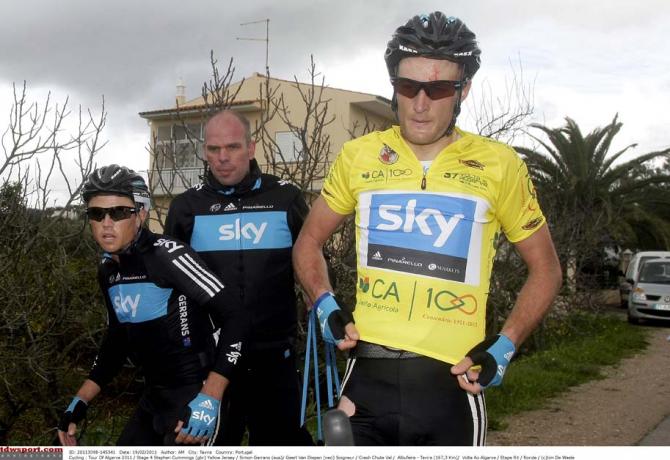
BMC Racing (2012-2014)
When I moved to BMC it was like the cool team and it was a really fun team to be on. I loved it there, we had so much fun. I loved being with Philippe [Gilbert] and Thor [Hushovd] and with the bike riders that we had there... it was exceptional. When I arrived, things were great because Cadel Evans had just won the [2011] Tour de France.
In my first year, I was really unlucky with crashes but they kept the faith and put me in the Tour de France and then the Vuelta a Espana. At the end of the season I was able to reward that faith [winning a stage of the Tour of Beijing], which I was happy to do because I really liked the people there.
All of a sudden, after that first year, things changed. The team wanted more results and they invested into it so the pressure increased, and then the management changed. The team changed quite a lot while I was there and I found it quite hard to find my way. We had so many strong riders in that team so that I was quite far down in the pecking order. The programme was never clear and I struggled with that mentally and to really focus and get my teeth into something. I think it showed on the road. I did better in my third year and it started pretty well but I still had a few bad crashes.
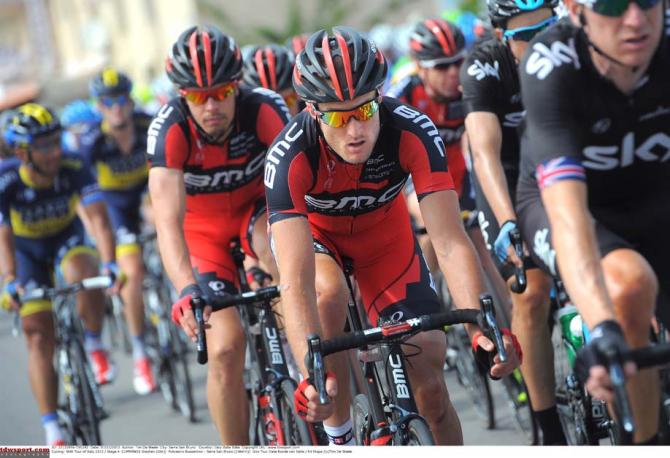
MTN-Qhubeka (2015-)
When I came to MTN-Qhuebka it was almost like going back to Barloworld where we didn't have any big riders. We were the underdogs and I was free to do my own thing. There weren't too many training camps, there were get-togethers, but I felt like, mentally, it was manageable and the goals were really clear. Right from the off it went really well and I maintained it through the year. The big thing was that I avoided crashing, touch wood, which I have done a lot of in previous seasons. If I can stay healthy and injury free then I hope to repeat it. We like to talk about the performances but I'd like to forget about those and focus on the physical aspects and putting myself in the right shape at the right time and the results should follow.
I think that the changes to the team for next year are really good. I must admit that I was a bit sceptical at first because you wonder how it is going to affect the team. If you think about it realistically though, in races like the Tour de France there might be five sprint stages but then there are 15 other stages so we've still got 15 chances. In the sprint stages I probably wouldn't try something anyway so it will be nice to be a part of that team. It takes so much pressure away from us and, for me, we've probably got the best sprinter of all time so that's pretty cool. He also happens to be a friend of mine and I can't say enough good things about Cav [Mark Cavendish] as a bike rider and a person. He's a really good guy.
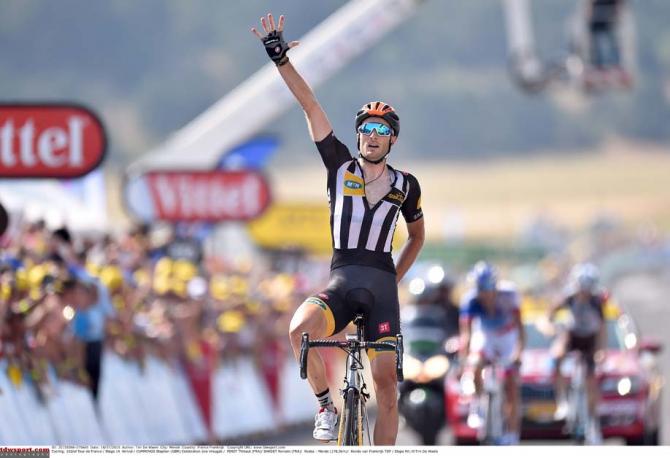
Born in Ireland to a cycling family and later moved to the Isle of Man, so there was no surprise when I got into the sport. Studied sports journalism at university before going on to do a Masters in sports broadcast. After university I spent three months interning at Eurosport, where I covered the Tour de France. In 2012 I started at Procycling Magazine, before becoming the deputy editor of Procycling Week. I then joined Cyclingnews, in December 2013.